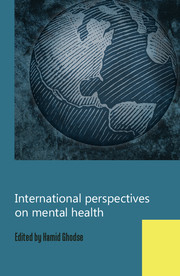Book contents
- Frontmatter
- Contents
- List of contributors
- Preface
- Africa
- Asia
- Afghanistan
- Armenia
- Azerbaijan
- Bahrain
- Bangladesh
- Brunei Darussalam
- Cambodia
- Hong Kong
- India
- Iran
- Iraq
- Israel
- Japan
- Jordan
- Kuwait
- Laos
- Lebanon
- Malaysia
- Mongolia
- Nepal
- Sultanate of Oman
- Pakistan
- The Philippines
- Qatar
- Singapore
- South Korea
- Sri Lanka
- Syrian Arab Republic
- Tajikistan
- Thailand
- Timor-Leste
- Turkey
- United Arab Emirates
- Yemen
- Australasia
- Europe
- North America
- South America
- Index
Israel
from Asia
Published online by Cambridge University Press: 02 January 2018
- Frontmatter
- Contents
- List of contributors
- Preface
- Africa
- Asia
- Afghanistan
- Armenia
- Azerbaijan
- Bahrain
- Bangladesh
- Brunei Darussalam
- Cambodia
- Hong Kong
- India
- Iran
- Iraq
- Israel
- Japan
- Jordan
- Kuwait
- Laos
- Lebanon
- Malaysia
- Mongolia
- Nepal
- Sultanate of Oman
- Pakistan
- The Philippines
- Qatar
- Singapore
- South Korea
- Sri Lanka
- Syrian Arab Republic
- Tajikistan
- Thailand
- Timor-Leste
- Turkey
- United Arab Emirates
- Yemen
- Australasia
- Europe
- North America
- South America
- Index
Summary
Israel is a multicultural society in a state of permanent change. The population, of about 6.5 million, comprises the following religious groupings: Jews (77.5%), Muslims (15.3%), Christians (2.1%), Druzes (1.7%) and others (3.4%). The organisation of and the approaches used by the country's health services have been determined by this socio-cultural plurality, and also by a continuous influx of immigrants (among whom, 882 600 and 44 200 arrived from countries of the former USSR and Ethiopia, respectively, between 1990 and 2001), as well as by the precarious security situation (the country has seen several wars with its neighbours in addition to the long-standing conflict with the Palestinians). The patterns of care of the population reflect both Western psychiatry and traditional systems. Because of such complexity, the present brief overview is necessarily selective.
Health indicators
The description of mental health services that follows will be better understood against a background of selected public health indicators and socio-demographic variables. Mean life expectancy in the year 2000 was 76.7 years for men and 80.9 for women. The infant mortality rate was 5.1 per 1000 live births in the year 2001. The coverage for immunisation for poliomyelitis reached 93% during the first year of life (1998 figure). The chief causes of mortality are the chronic disorders, an area of health that calls for closer linkage with the mental health professions. With regard to age, 28.5% of the population are under 15 years and 9.8% are 65 years old or more. The median time spent in education for people aged 15 and over was 12.3 years by the year 2000. All these figures refer to the combined Israeli population; however, there are some notable differences between specific population groups (Central Bureau of Statistics, 2002).
National health insurance
By law, all residents are insured for healthcare and contribute to a national fund according to income. Most of the population is served by one of the four health maintenance organisations, the largest of which was established in the pre-State years (before 1948) by the labour unions.
Importantly, the law that established this health system did not include either psychiatric care or geriatric and nursing services. In 2002, the government decided to transfer all responsibility for mental healthcare (see below) to the health maintenance organisations; implementation of this decision is expected in 2005.
- Type
- Chapter
- Information
- International Perspectives on Mental Health , pp. 117 - 124Publisher: Royal College of PsychiatristsPrint publication year: 2011



